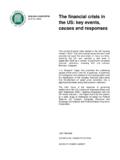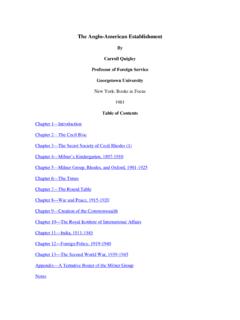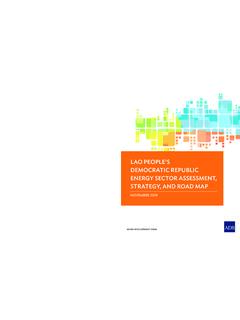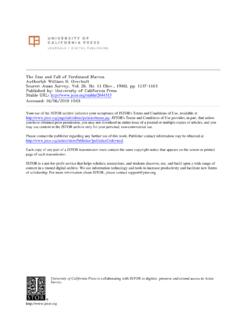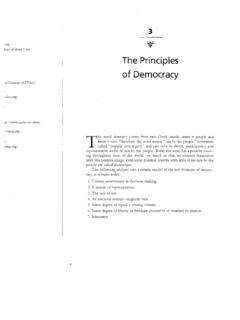Transcription of The Day After. Supporting a Democratic Transition in Syria ...
1 The full report on which this Comment is based is published by The Day After Project, SWP Comments 28 an NGO focusing on Transition support for Syria , available shortly on August 2012 1 Stiftung Wissenschaft und Politik German Institute for International and Security Affairs SWP Comments 50 1962 2012 SWP Introduction The Day After. Supporting a Democratic Transition in Syria Vision, Principles, Objectives, Challenges, and Recommendations Among the challenges confronted by the Syrian opposition since the start of the Syrian revolution in March 2011 has been the lack of a unified vision for Syria s future and of concrete and detailed planning to respond to the significant challenges that will accompany a post-Assad Transition .
2 The absence of a clear vision and detailed plans has reinforced fears among some segments of Syrian society about what the future might hold should the Assad regime collapse. It has also constrained efforts by the inter-national community to support the opposition in its efforts to overthrow the Assad regime. To address this gap, The Day After project provided a framework within which some 45 prominent opposition representatives of varied backgrounds participated in a facilitated process of Transition planning. The project has now published a document that provides a comprehensive vision for a post-Assad order, agrees on principles and goals, identifies challenges and risks, and puts forward concrete recommendations in six policy fields crucial for a successful Transition .
3 The document also offers recommen-dations for measures to be taken immediately to put in place the foundations for a suc-cessful Transition . Today, Syrians are struggling to overthrow an authoritarian regime and secure the opportunity to live in a stable, peaceful democracy. Transitions to democracy are always difficult. Those that occur in the wake of armed conflict face the most daunt-ing of challenges. They must contend not only with the legacies of dictatorship, but with the immediate consequences of vio-lence human, social, institutional, and economic which vastly complicate, and often overwhelm, efforts to build and con-solidate Democratic institutions and norms in a traumatized, post-conflict society.
4 Even under the most difficult circum-stances, however, prospects for a successful Transition improve when it is anchored in shared principles and a shared commit-ment to clearly defined goals. Transitions that are guided by an understanding of the pathway to be followed, agreed principles, and the destination that citizens are work-ing to reach are much better equipped to meet and overcome the challenges they SWP Comments 28 August 2012 2 inevitably encounter. In addition, transi-tions are more likely to succeed when they take into account the specific historical experiences of a country, its social struc-ture, cultures, and traditions.
5 The odds of success increase further when risks and challenges that may disrupt a Transition are identified, strategies for mitigating them developed, and when sufficient flexibility is built into a Transition plan to ensure that it remains relevant even under volatile and unpredictable conditions. Against this backdrop and with the objective of making a substantial contribu-tion to Transition planning for Syria , The Day After project was conceived. Acting under the auspices of a Syrian Executive Committee, the U. S. Institute of Peace (USIP) in partnership with the Stiftung Wissenschaft und Politik (SWP) facilitated its deliberations.
6 Goals and Core Principles Participants in The Day After project identified the following as goals that should guide the efforts of transitional authorities. Progress toward the achieve-ment of these goals will increase prospects for a successful post-Assad Transition : Citizenship and equality of all citizens, rather than sectarian, ethnic, or gender considerations, should be decisive in rela-tions between individuals and the state. Syria should be a civil state in which the role of the security forces should be to protect the security and human rights of all citizens. Unity of state and territory together with elements of decentralization will allow for citizens participation on all levels.
7 The economy should be managed to realize social justice, human develop-ment, sustainable development, and the protection of natural resources. The new political leadership and govern-ment should demonstrate a clear com-mitment to Democratic principles and processes to break with authoritarian legacies. A new national identity needs to be developed, strengthened and promoted. Unity needs to be fostered among all components of Syrian society, and a con-sensus on the core values and fundamen-tal principles of the nation as well as the new framework for governance needs to be built. Also, citizens need to be educat-ed and empowered on the principles and practice of democracy.
8 These goals, which are at the heart of Syria s revolution, cannot be achieved by Syrian leaders on behalf of the people but must be realized by the Syrian people them-selves through a process of civic education, national dialogue, and public consultation that allows the people to express their fears, needs, and aspirations directly to their leaders and each other. Such a process should be grounded in the following core principles: Inclusiveness and Participation: An inclusive and participatory transitional process is one that includes all components of Syrian society. Inclusion is achieved by encouraging public participation to the greatest extent possible.
9 Participation is a natural and legitimate right of the Syrian people, both to express freely their opin-ions, interests, and preferences to a tran-sitional authority and to be confident that transitional authorities will be responsive to and promote inclusive participation. Transparency and Accountability: A transparent transitional process is one that is conducted in an open manner, through effective mechanisms for deliber-ation. Transparency is essential if Syrians are to be informed about and participate in shaping a new Syria . Accountability of pub-lic officials ensures that that the opinions and preferences of the Syrian public are taken into consideration by the transitional authority.
10 Consensus: A transitional process will benefit when decisions reflect as broad a consensus as possible among all compo-nents of Syrian society, and where decisions are reached by deliberation, negotiation, and persuasion to the greatest extent pos- SWP Comments 28 August 2012 3 sible. This, along with inclusion, partici-pation, transparency, and accountability, guarantees that decisions taken by tran-sitional authorities reflect the interests and the aspirations of the nation, and not just one societal interest. Participants in The Day After project recog-nize that working toward these goals and objectives will at times strain the capacities of Syrian society.

